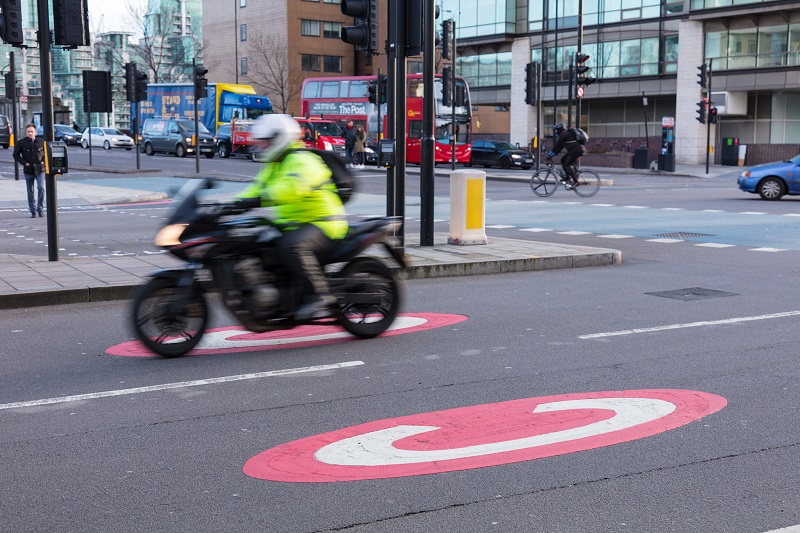
Image: TfL
A coalition of organisations is calling on the Government to make changes to compulsory basic training (CBT) for motorcycles to strengthen safety standards and reduce danger on roads.
The current CBT for motorcycles and mopeds, which enables people as young as 17 years to ride up to the national speed limit with L-plates after one day of training and without a theory test, was developed more than 30 years ago.
The coalition, which includes Transport for London (TfL), the Motorcycle Industry Association, the National Motorcyclists Council, and other transport authorities and road safety charities, has written to the Government stressing that improving the CBT will make a ‘huge impact on the safety of the United Kingdom’s roads’.
The letter calls on the Government to introduce:
- powers to revoke CBT certificates or take other measures for learner riders who have accrued six penalty points
- restrictions limiting learners who complete their CBT course on a machine with automatic transmission to riding an automatic machine
- a combined CBT and DAS instructor qualification assessment
- changes to the CBT syllabus, including requiring instructors to ensure trainees are appropriately dressed
- a theory test as part of or prior to CBT
Lilli Matson, TfL’s chief safety, health and environment officer, said: “People are tragically losing their lives in avoidable motorcycle collisions, which all too often also injure or kill other road users, including people walking and cycling. Motorcycle riders already account for a high number of people killed or seriously injured on our roads.
“The training requirements for people to be able to legally ride motorcycles is inadequate in preparing them to handle the hazards likely to be encountered on the road. It is vital that more is done to stop these preventable deaths and injuries and we ask that this matter is given urgent attention.”
The Driver and Vehicle Standards Agency (DVSA) and Department for Transport (DfT) held a consultation regarding changes to motorcycle training in 2017.
The coalition says there was very strong support for the proposals in the consultation document, including 85% of respondents supporting changes to the CBT syllabus, 83% agreeing that trainee riders should take a theory test before attending a CBT assessment, and 84% agreeing that authorities should have powers to revoke a CBT certificate.
Tony Campbell, CEO of the MCIA, said: “I stand with the letter signatories in expressing our collective concern for road safety and the need to improve CBT.
“Although it is disheartening that despite the widespread support, the recommended changes proposed by DVSA following the “Improving Moped and Motorcycle Training” consultation have yet to be implemented, together, we can strive for safer roads and the well-being of all road users.
“The time has come for the Government to listen and act. Let us work hand in hand to bring about the necessary updates and improvements to CBT, ensuring a safer and more inclusive future for moped, motorcycle and other powered light vehicle users across the nation.”
Craig Carey-Clinch, NMC executive director, said: “The changes we call for in our joint letter today were agreed by Government several years ago and their introduction is long overdue.
“We urge the secretary of state and the DfT to commence work to implement this positive and potentially life-saving legislation.”
I would add restrictions on L plate riders working. It’s beyond belief that a learner can be entrusted to ride long hours doing deliveries without proof of capability to do so.
Peter Whitfield, Liverpool
+5